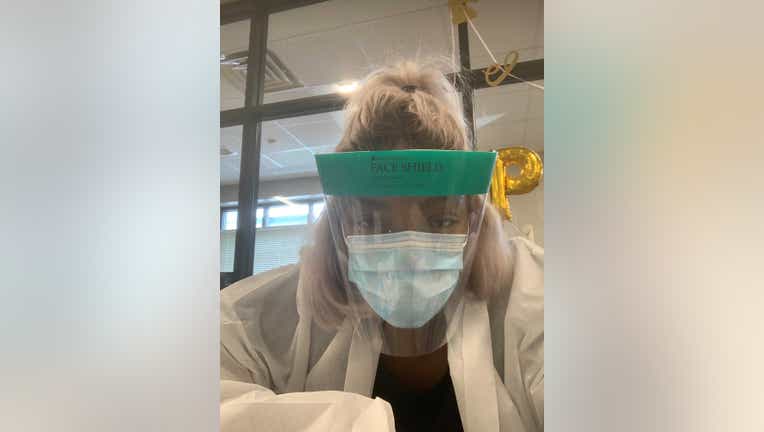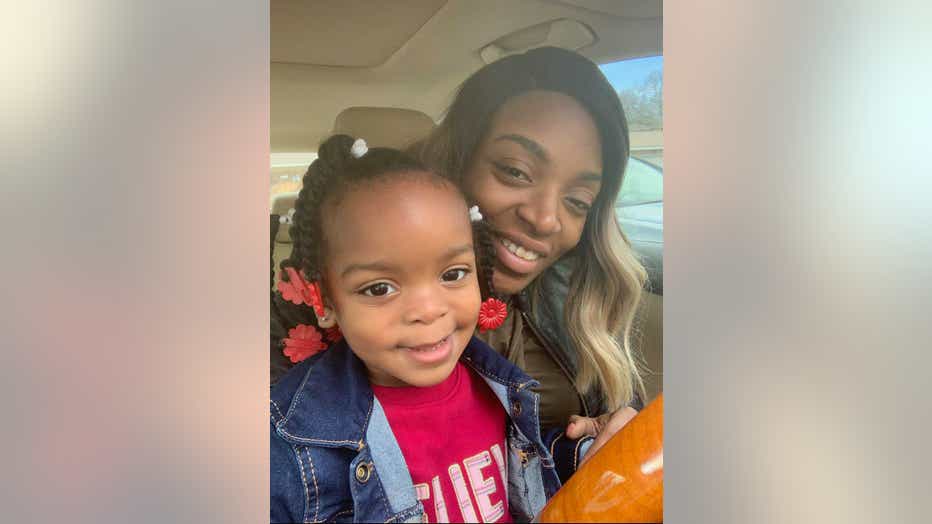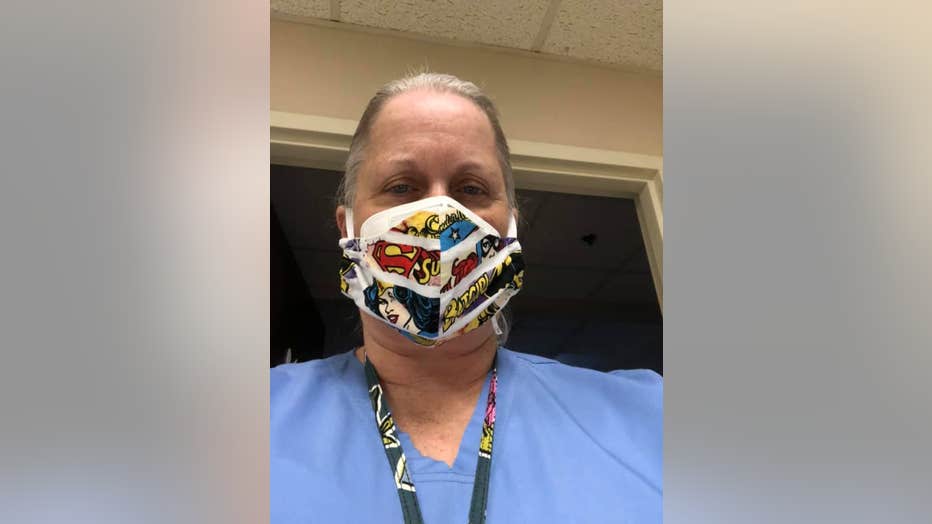Without sick pay benefits, COVID-infected healthcare workers feel pressure to return to work

Porshe Harris thinks she contracted COVID-19 while working as a dialysis clinic technician.
NEWNAN, Ga. - Some Georgia healthcare workers who contract COVID-19 face an extra burden.
They say they feel pressure to return to work before they’re fully recovered because they don’t get sick leave pay.
Porshe Harris is a patient care technician at DaVita Kidney Care in Newnan. She came down with the virus June 24 and hasn’t been back to work since.
But because DaVita doesn’t have sick pay benefits, Harris was required to use paid time off — called PTO — instead.
Only problem, she doesn’t have enough hours built up to cover the amount of her regular check.
“I can’t pay my rent,” she explained. “No one’s doing anything financially for me when it comes to my job.”

Porshe Harris is staying in a discount hotel so she doesn't spread COVID-19 to her three children and mother, all with underlying health conditions.
Harris talked to us via Zoom from a discount hotel in Newnan. She moved in shortly after testing positive because she didn’t want to infect her three children or her mother who lives with them. All have underlying health issues.
“I can’t allow my family to get sick,” she said.
But if she can’t afford her rent, she certainly can’t afford a hotel, too.
This was a problem Congress tried to address.
In April, President Trump signed into law the Families First Coronavirus Response Act or FFCRA. It guaranteed two weeks paid sick leave for COVID-19 patients. But the law allowed wide exemptions for the healthcare industry.
The House has since passed new legislation that would close those exemptions, but the bill is currently tied up in the Senate.

LPN Jane Thayer thinks a sick nursing home resident passed along the virus. Forty-nine have tested positive at her job. Five residents have died.
“Nobody cares about us nurses,” said Jane Thayer, a licensed practical nurse who works at Northridge Health and Rehabilation in Commerce.
The elder care facility has seen thirteen staff and 49 residents test positive. According to state figures, five residents have died from the disease.
Thayer contracted the virus two weeks ago, posting daily video updates on Facebook.
“It’s kicked my butt,” she warned her friends.

Employees feel pressure to return to work early due to no sick pay benefits
Without sick pay benefits, COVID-infected healthcare workers feel pressure to return to work.
But when Thayer received her most recent paycheck, she was stunned at the total amount: $55.01. That's the balance of her remaining PTO. They don’t get separate emergency sick pay here, either.
“I’m just very upset about it,” she told her Facebook friends while trying unsuccessfully to hold back tears. “I’m sorry. I said I wasn’t going to cry.”
The non-profit Kaiser Family Foundation estimates 17.7 million healthcare workers are currently not guaranteed emergency paid sick leave.
The Centers for Disease Control and Prevention says 92,957 healthcare workers have contracted the virus. More than 500 have died.
“This shouldn’t be happening,” complained Thayer. “We should be taken care of. How come people with other companies, other companies can take care of them?”
Northridge Health and Rehabilation said in a statement that they want workers "to heal from the virus and return to work healthy."
They do not offer sick pay, but the company says its Human Resources Departement will work with any staff member who has exhausted their PTO to compensate them for "the amount of pay lost to COVID-19, up to the Center for Disease Control (CDC) recommended quarantine period of 14 days... If the period of time missed from work exceeds the 14-day quarantine period per the recommendation of the employee’s physician, the Human Resources department will assist the employee in filing for temporary unemployment benefits."
Thayer said she was told any compensation would have to wait until she actually returns to work.
"People live paycheck to paycheck," she said. "When you find out that you're not going to get your pay until you come back to work, what does that make you want to do? It makes you want to go back to work because you've got bills you've got to pay."
Both she and Porshe Harris say the lack of a full paycheck forces them to think about coming back to work before they’re fully ready.
“And that’s the biggest thing,” said Harris. “I’m worried about my job.”
And she realizes there’s a risk in speaking out. Still…
“I’m willing to do whatever it takes to let the world know, there’s healthcare workers going to work because they’re scared to lose their jobs over — you know — their sickness.”
The company has made arrangements to let other employees donate to Harris’ PTO hours.
“We offer full-time teammates over three weeks paid time off each year, short-term disability and backup child care to help those impacted by COVID-19 or any illness.” DaVita Kidney Care said in a written statement. “The health and safety of our teammates and patients has always been our top priority. We follow CDC guidance in all aspects, including work guidelines, to ensure we can help teammates safely return to work. Our policy is that teammates can return to work 10 days after their symptoms first appear in most cases, as long as they have been symptom free for at least 72 hours.”
Earlier in the year, DaVita Kidney Care gave every worker up to $1000 in COVID relief pay.
But like so many others in the healthcare field, there are no plans to add separate sick pay benefits anytime soon.

